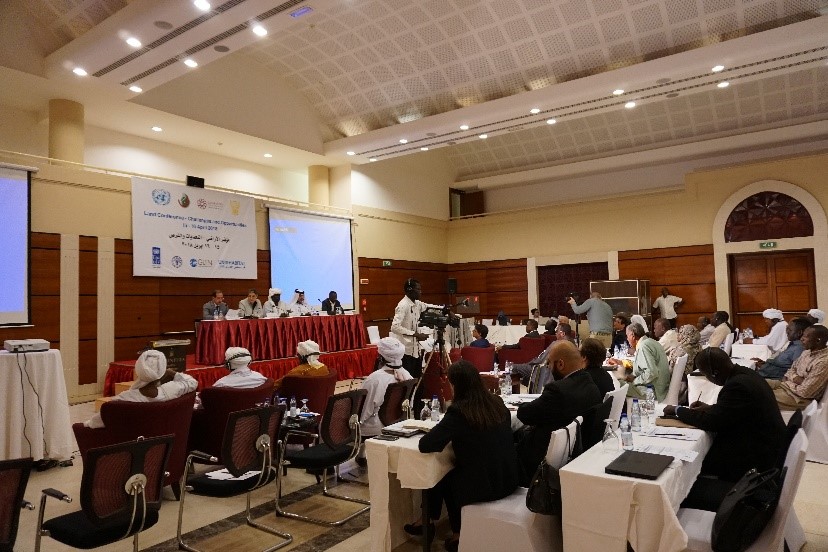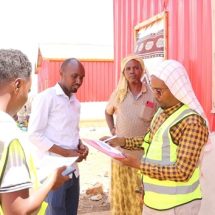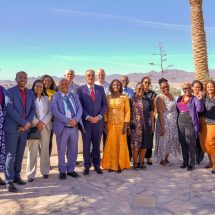Co-organised by UN-Habitat, UNDP, FAO, the Global Land Tool Network, the Ministry of Environment of Sudan and the Darfur Land Commission, the Sudan Land Conference is has started yesterday with over 120 participants coming from various local, national and international organisations.
Representatives from several national Ministries, the five states of Darfur, academia, civil society, traditional leaders, communities, Darfur Land Commission, nomads and farmers, UN agencies, donors and international organisations are gathered in Corinthia Hotel – Khartoum to debate the opportunities for land actors and to improve land governance and land administration in support to peace and stabilization efforts in Sudan.
The conference aims at developing a joint understanding of key land governance challenges and opportunities in Sudan with a focus on Darfur to form a common vision with key recommendations for the way forward.
Facilitating the opening session, Mr.Wael Alshahab, head of UN-Habitat in Sudan, highlighted the importance of land in ensuring prosperity and sustainable development and to create an enabling and secure environment for returnees displaced because of conflict.

H.E. Mr.Jaber Aboud, the state Minister of Environment, Natural Resources and Physical Development, highlighted that today is a unique opportunity for all the conference’s participants to engage in discussions around opportunities and challenges, based not only on UN experiences in Darfur, but also relevant lessons learned and good practices from other Arab countries.
In addition of supporting the substantive elements of this conference, the Global Land Tool Network (GLTN) presented a regional Arab land perspective to update Sudan land actors on the outcomes of the First Arab Land Conference, held in UAE in February 2018, and to share key regional messages and recommendations emerged from it. A comparative analysis of land tenure interventions implemented by different African countries to reconcile customary and statutory land administration were proposed. UN-Habitat Sudan presented also concrete examples on land registration for customary tenure in other African countries.
With this conference, Sudan is implementing and contributing to the Arab Land initiative outcomes and will provide important knowledge to be shared on the regional level.
The day two of the conference will be dedicated to the three specific land governance themes of the conference: Land and conflict (peace and stability), fit for purpose land administration, and security of tenure. The outcomes of the workshop will be a set of recommendations for the way forward that will constitute the basis of a roadmap for strengthening the land governance, peace and stability in the country.
Contacts:
Masayuki Yokota, Deputy Head of UN-Habitat Sudan, masayuki.yokota@un.org
Global Land Tool Network : unhabitat-gltn@un.org; ombretta.tempra@un.org












